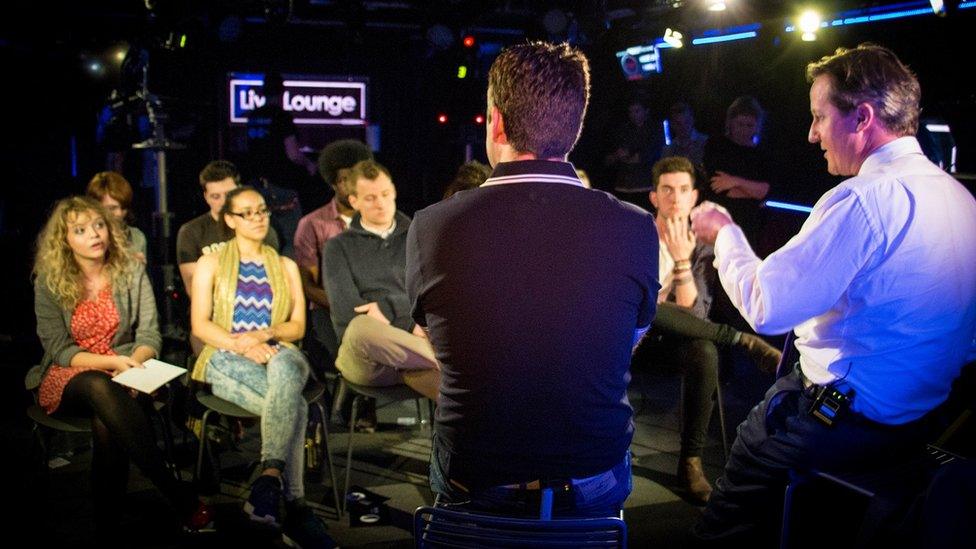What happens if pensioners vote but young people don't
- Published
- comments
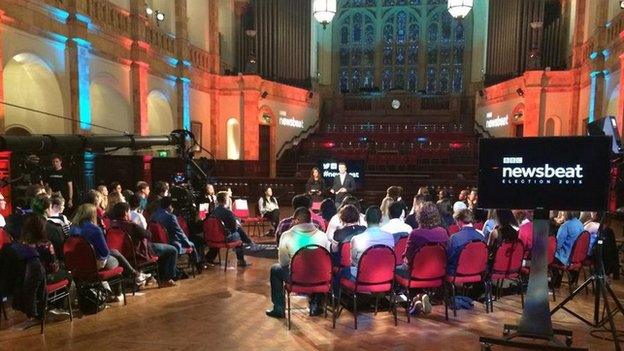
Young voters joined BBC Newsbeat's debate in Birmingham on Tuesday
The magnificent Great Hall of the University of Birmingham has established itself as one of Britain's great cathedrals dedicated to our political devotions.
In the past five years it has seen a 2010 televised prime ministerial debate, a husting event in the resultant Labour leadership campaign and a well-attended public meeting addressed by their lordships Heseltine and Adonis in support of their so far unavailing campaign for the city to elect its own executive mayor.
It has also hosted several editions of BBC One's Question Time.
Young voters
On Tuesday, I arrived there during final preparations for the second of BBC Radio One's Newsbeat debates.
The programme's political reporter Greg Dawson told me their recent survey of 6,000 18 to 24-year-olds had revealed what most concerned young voters as they pondered their general election options.
The NHS came top with 42% of people mentioning it as a key issue and 33% made keeping down everyday costs one of their priorities.
Education was highlighted by 24% of those surveyed, while 23% mentioned affordable housing.
But fewer than half (47%) said they expected to vote at all.
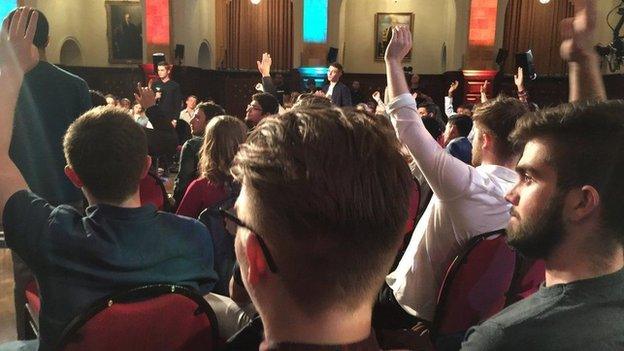
The NHS, education, jobs and immigration were among the issues on the agenda at the debate
A worrying disconnection is emerging between the politicians and younger voters.
No wonder there is so much talk about decision-makers who are accused of neither listening to them nor caring that young people seem to be getting the worst of the austerity savings. Student tuition fees have become an obvious case in point.
But consider the wider argument.
Whoever wins the election is expected, for example, to introduce a cap on child benefit.
Deeper disillusionment
Rising generations are afraid that they will be unable to afford their own homes, will find themselves stuck with the accumulated debt from PFI schemes and long periods of public overspending.
All of which, they feel, threatens to impoverish their own old age. Existing pensioner benefits, by contrast, have been largely untouched by the public spending cuts, except for the wealthiest pensioners.
Most retired people still have their travel concessions, winter fuel allowances, free TV licences and prescriptions.
Any sense that "the pensioner vote" weighs disproportionately heavily in the minds of our politicians on the basis that they vote and young people don't could prove seriously corrosive long term to our cherished democratic institutions.
Imagine a vicious circle in which young people become increasingly detached, so politicians pay less and less attention to them, leading in turn to yet deeper disillusionment and disengagement among those aged 18 to 24.
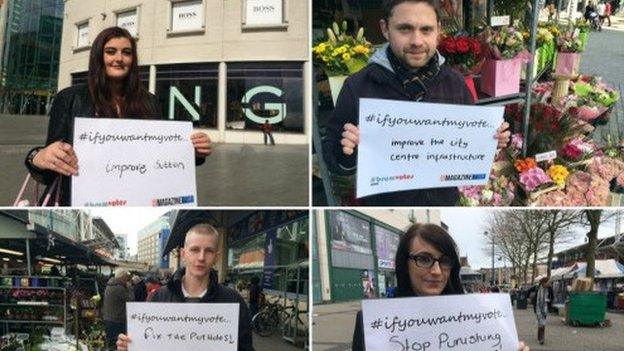
Brumvotes is exploring some of the big issues affecting young people in Birmingham ahead of the election
Youngest city
Newsbeat's debate gave ample evidence of just how unhappy and aggrieved many of Radio One's listeners feel right now.
What's to be done?
BBC WM's Brumvotes, external is at least a start. It aims to help young voters in Birmingham to understand what is at stake in this election -remember, it is the youngest city in Europe with 40% of its population under the age of 25.
The project is fronted by Noel Phillips, who reported this week for BBC Midlands Today on how social media is playing an ever-bigger part in reaching out to all sections of the electorate, especially younger people.
Noel reminded us that in the last election, social media sites were "the new kids on the block". Now they are indispensible for the campaigns to reach out to their public, young and not-so-young alike.
Campaigning for greater engagement by all sections of the community, but especially 18 to 24-year-olds, Michael Sani of the Bite the Ballot website told us a huge surge in younger people turning out on 7 May "would force politicians to re-consider their policies".
The converse may be equally true.
- Published21 April 2015
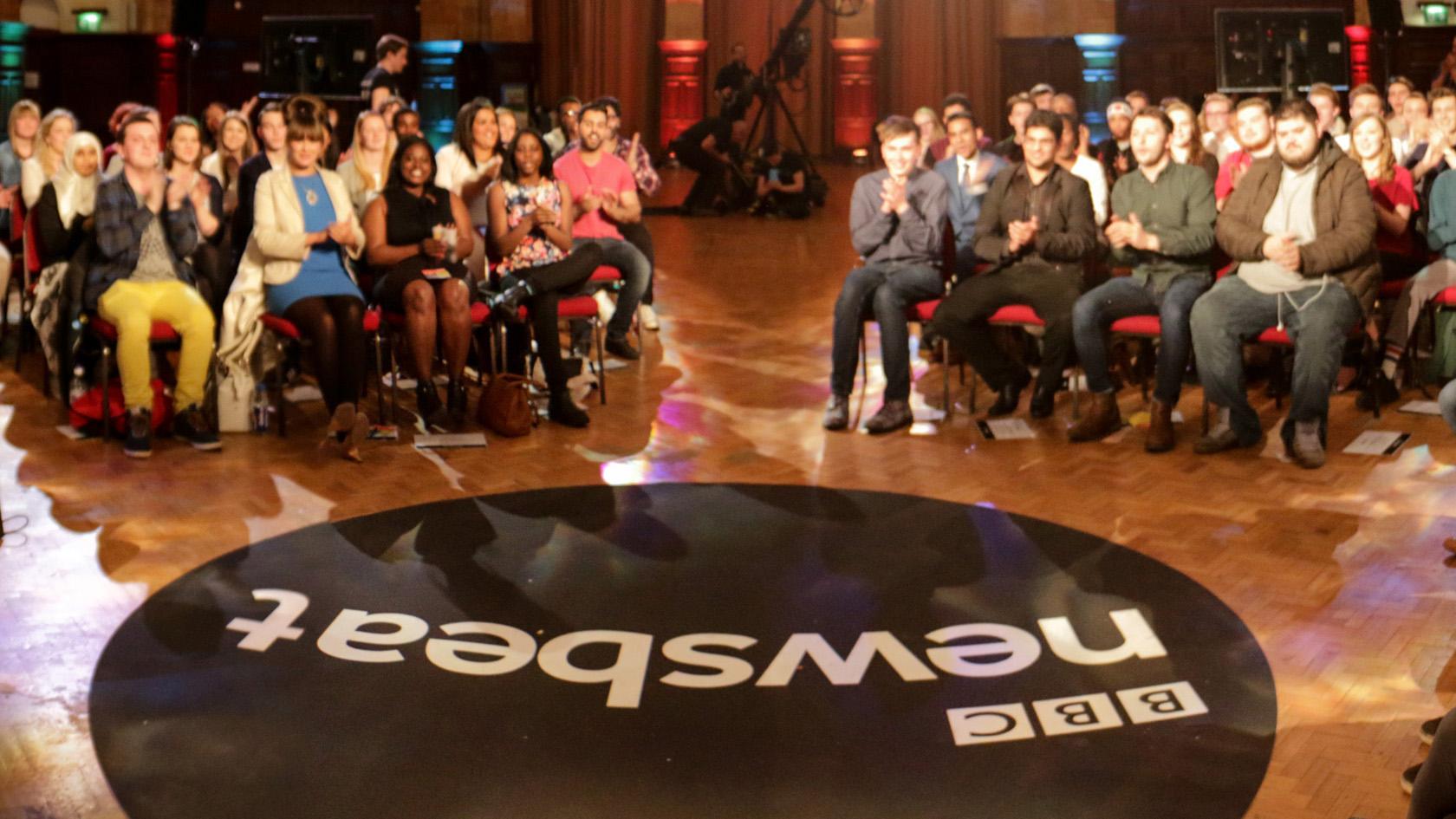
- Published20 April 2015

- Published22 April 2015
